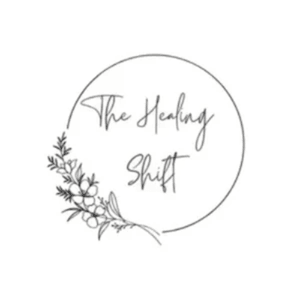I never imagined I’d be the nurse who wanted to quit. But after years in the ICU, the weight of compassion fatigue pressed down on me until I could barely breathe. At first it was subtle—snapping at coworkers, feeling drained after every shift. Then it grew into something heavier: emotional exhaustion that followed me home, a creeping bitterness that made me question why I ever became a nurse in the first place. I started to feel jaded, detached, and dangerously close to walking away from the profession I once loved.
It was a dark season, but I wasn’t alone. I leaned on others for support, and unexpectedly, I leaned on plants. Herbs became more than something in a tea bag—they became companions, small rituals of care that reminded me I was still human, still worthy of healing. Over time, I found myself drawn to five in particular. They’re simple, accessible, and deeply restorative—herbs every burned‑out nurse should know.
Rose was the first that softened me. Roses aren’t just beautiful; they’re medicine for the heart. Rose petals in tea or infused in honey carry a gentle sweetness that soothes emotional wounds. For me, rose reminded me that tenderness wasn’t weakness—it was strength. Even keeping a small jar of dried petals on my desk became a ritual of remembering to treat myself with the same compassion I gave to patients.
Holy basil, or tulsi, became my anchor on chaotic days. Unlike the sweet basil we toss into pasta, tulsi has been revered for centuries as an adaptogen—an herb that helps the body adapt to stress. Drinking tulsi tea before a shift gave me a sense of calm alertness, like I could meet the day without being swallowed by it. Its peppery, grounding flavor became a daily reminder that resilience doesn’t mean pushing harder; it means finding balance.
Lavender was my bridge back to rest. After too many sleepless nights, I began tucking a lavender sachet into my scrubs drawer and brewing lavender tea before bed. The scent alone signaled to my nervous system that it was safe to let go. For nurses who live in a constant state of hyper‑vigilance, lavender is like a gentle hand on the shoulder saying, “You can rest now.”
Chamomile offered me softness when I felt brittle. It’s a humble little flower, but its ability to calm digestion, ease tension, and quiet the mind is profound. On nights when my body was buzzing with adrenaline long after my shift ended, chamomile tea became my ritual of unwinding. Sometimes I’d even sprinkle dried chamomile into a warm bath, letting the steam carry its apple‑like scent into the air.
And then there was lemon balm, the herb that brought light back into my days. Its citrusy fragrance lifted my mood when everything felt heavy. I started keeping a small pot of lemon balm on my windowsill, and during breaks I’d rub a leaf between my fingers just to inhale its brightness. It was a tiny act, but it reminded me that joy could still be found in small, ordinary moments.
These herbs didn’t erase the systemic challenges of nursing, and they didn’t magically cure burnout. But they gave me something I desperately needed: rituals of care that were mine alone. They were simple, affordable, and accessible—plants I could grow in pots, buy as teas, or keep as dried bundles in my kitchen. More importantly, they reminded me that healing doesn’t always come in grand gestures. Sometimes it’s in the quiet act of brewing tea, tending a plant, or pausing to breathe in a fragrance that grounds you.
If you’re a nurse standing on the edge of burnout, I want you to know this: you are not alone, and you are not broken. Herbs like rose, holy basil, lavender, chamomile, and lemon balm can’t fix everything, but they can help you carve out small spaces of peace in the chaos. And sometimes, those small spaces are enough to keep you rooted until the light returns.
